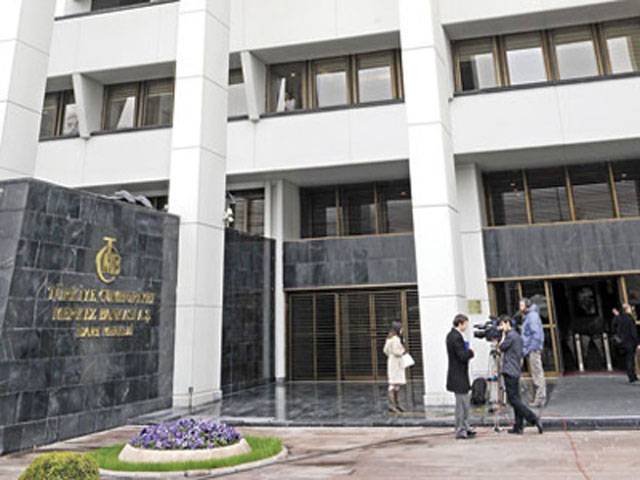ISTANBUL - Turkey’s central bank chief threatened on Monday to cut interest rates if the lira keeps climbing, pushing the currency down in verbal intervention aimed at curbing a yawning current account deficit.
It was the clearest hint yet that the central bank may ease monetary policy again next week to protect the economy, which ratings agency Fitch raised to investment grade last Monday, from destabilising inflows of foreign cash.
“The lira has come to an excessive appreciation level. If it firms further, it may necessitate a policy reaction by the central bank,” Central Bank Governor Erdem Basci said, adding a “measured” rate cut may come if the lira remains strong. The lira weakened to 1.7995 to the dollar after Basci’s comments from 1.7896 late on Friday. The yield on the benchmark two-year bond hit a record low of 6.30 per cent from 6.53 per cent beforehand.
“This was verbal intervention by the central bank on the lira. It seems like the bank’s scenario is based on a second investment grade upgrade within the next six months, and it is adopting necessary measures in advance,” said Bora Tamer Yilmaz, a vice president at Halk Invest.
Basci said at an event organised by state-run Anatolian news agency that the central bank would act swiftly if the real exchange rate reached 120-125 on the bank’s index, and it would use all policy tools available if it rose above 130. One analyst said he did not expect any swift moves by the bank, however, noting that the currency was still below those target levels.
“As of end-October this (real exchange rate) index stood at 117.40. Consequently we do not expect an aggressive reaction from the central bank,” Ozgur Altug, chief economist at BGC Partners, wrote in a note.
Fitch’s move last Monday gave Turkey its first investment grade credit rating in 18 years, in an endorsement of the economic transformation over the last decade under Prime Minister Tayyip Erdogan. The upgrade pushed the lira to a three-month high.
urkey’s main economic weakness is its current account deficit, which reached 10 per cent of national output in 2011.
Tight monetary policy implemented at the end of 2011 and the start of this year brought that down by 34 per cent to $36.1 billion in the first eight months of the year. While the country welcomed the rating upgrade, it will be wary of any subsequent influx of investment cash from abroad that could further inflate the current account deficit.
“If capital inflows to Turkey are not well managed, the current account deficit may widen again due to the lira’s appreciation. We expect the central bank to cut by 25 basis points by the year end and possibly lower the bottom end of the interest rate corridor, depending on the size of the inflows,” Yilmaz added.
The lira has firmed around 2 per cent against the dollar and 3 per cent against its euro-dollar basket since early October, when markets began pricing in a rating upgrade by Fitch.
“Basically they are going to start where they ended last year and will keep the lira weak. They’re comfortable at these levels, but any appreciation from these levels I don’t think they would tolerate as much,” said Thu Lan Nguyen, emerging markets strategist at Commerzbank in Frankfurt.
To cut the current account deficit and keep inflation in check, the central bank has applied since late 2010 an unorthodox policy mix based on a low policy rate, high reserve requirement ratios and an adjustable interest rate corridor, the gap between the overnight lending and borrowing rates.
In October, it cut the overnight lending rate for the second month in a row, by 50 basis points to 9.5 per cent, to support the slowing economy. It also took steps to curb loan growth and avoid stoking inflation.
Since August 2011 the bank has kept its overnight borrowing rate at 5 per cent and its main policy rate, the one-week repo rate, at a record low at 5.75 per cent.
The central bank meets to set monetary policy next Tuesday.
Saturday, April 20, 2024
Turkey central bank threatens rate cut to bring down lira

Policitising Tragedy
April 20, 2024
Tehran to Rafah
April 20, 2024
A New Leaf
April 20, 2024
A Tense Neighbourhood
April 19, 2024
Dubai Underwater
April 19, 2024
Dangers of Deepfakes
April 20, 2024
Feudalism
April 20, 2024
Kite tragedy
April 19, 2024
Discipline dilemma
April 19, 2024
Urgent plea
April 19, 2024
ePaper - Nawaiwaqt
Advertisement
Nawaiwaqt Group | Copyright © 2024





